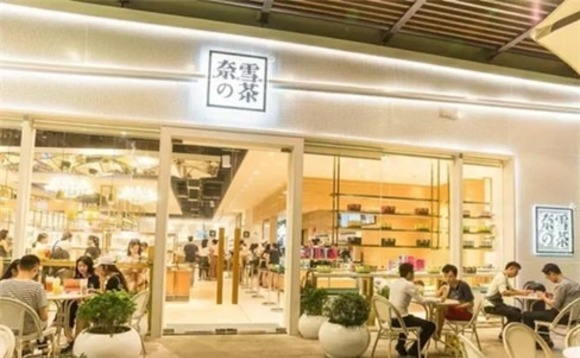
China teahouse chain Nayuki pursues Hong Kong IPO

Nayuki, a private equity-backed Chinese teahouse chain also known as Naixuecha, has filed for a Hong Kong IPO. It comes on the heels of a $100 million Series C round.
PAG was the major player in the most recent investment, putting in almost all of the capital raised across two tranches in December and January, according to a prospectus. However, Nayuki's largest external shareholder is Tiantu Capital with a 13.05% stake to PAG's 6.22%.
The consumer-focused private equity firm provided RMB70 million ($10.8 million) in Series A funding in early 2017, took part in a RMB22 million extension several months later, and then committed RMB300 million to the first tranche of a Series B in 2019. Nayuki raised RMB626 million across three Series B tranches, with Shenzhen Capital Group among the other participants.
Founded in 2015, Shenzhen-based Nayuki serves freshly made tea drinks. It has a core menu of 25 varieties of classic tea drinks - made using premium tea leaves - and offers more than 25 types of baked goods, most of which are produced in the teahouses. As of September 2020, there were 420 stores across 61 cities in mainland China, plus one each in Hong Kong and Japan.
The company claims 29.2 million registered members who accounted for nearly half of all orders in the first nine months of last year. An increasing number of these orders are being made online, with deliveries responsible for a 24% share in the first nine months of 2020, up from 12.5% in 2019 and 4.4% in 2018.
Nayuki's latest initiative is Nayuki Pro, a new store concept. It differs from a conventional store in that pre-made baked goods are supplied from a central kitchen. This means Pro outlets are smaller in size and cheaper to maintain. Pro stores also have dedicated pick-up and delivery areas. The concept was launched last November and there are now 14 outlets.
Nayuki plans to invest approximately RMB910 million in opening 300-350 teahouses in 2021 and 2022, 70% of which will be Pro outlets. Opening a Pro store costs RMB1.25 million versus RMB1.85 million for a regular store.
Nayuki recorded revenue of RMB909 million in 2018, RMB2.29 billion in 2019, and RMB1.98 billion for the first nine months of 2020. Over the same three periods, same-store profit margins were 24.9%, 25.3%, and 12.6%. The decline last year was blamed on the COVID-19 outbreak. For the three months ended September, the margin recovered to 18.1%.
The company posted a net loss of RMB39.6 million in 2019, down from RMB69.7 million the previous year. For the first nine months of 2020, the net loss was RMB27.5 million.
China's market for freshly-made tea drinks was worth approximately RMB113.6 billion in terms of retail consumption value in 2020. It is expected to reach RMB340 billion by 2025. There are around 340,000 outlets nationwide, with an average selling price of RMB13 for tea products.
Nayuki is one of the leading brands in the premium segment with an average selling price above RMB20. It claims a market share of 17.7%. The company's principal rival is Heytea, which reportedly recently secured funding from Hillhouse Capital and Coatue Management. This has not been confirmed by HeyTea.
Latest News
Asian GPs slow implementation of ESG policies - survey
Asia-based private equity firms are assigning more dedicated resources to environment, social, and governance (ESG) programmes, but policy changes have slowed in the past 12 months, in part due to concerns raised internally and by LPs, according to a...
Singapore fintech start-up LXA gets $10m seed round
New Enterprise Associates (NEA) has led a USD 10m seed round for Singapore’s LXA, a financial technology start-up launched by a former Asia senior executive at The Blackstone Group.
India's InCred announces $60m round, claims unicorn status
Indian non-bank lender InCred Financial Services said it has received INR 5bn (USD 60m) at a valuation of at least USD 1bn from unnamed investors including “a global private equity fund.”
Insight leads $50m round for Australia's Roller
Insight Partners has led a USD 50m round for Australia’s Roller, a venue management software provider specializing in family fun parks.








